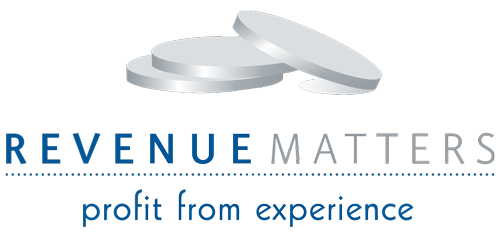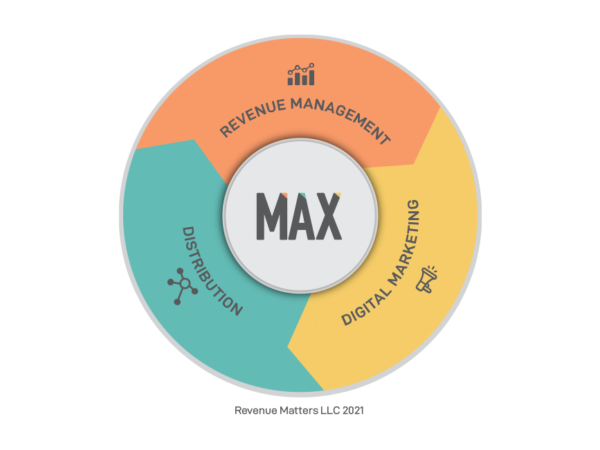
By: Mike Klingshirn, MPH, CPH, PMP
Fusion Cell
Our understanding of COVID has changed dramatically over the last two years. However, the messaging has not kept up with the science. As an epidemiologist, my job is to educate and help drive risk-based decisions for leaders. Our team has found success in event planning and we think it is important to share our experiences.
Combating fear
Most states have lifted restrictions around COVID in response to the CDC’s new county checker. Not everyone understands the guidance, and some may have questions. I know I did.

The CDC has had a history of making changes to recommendations without communicating the reasons for the changes. As an epidemiologist, I look for the “why” behind the change and help organizations understand what is different. I think the Financial Times medical team has one of the best graphics demonstrating the lethality of COVID over the last 24 months. COVID as we see it today is about as deadly as influenza. High vaccination rates and less severe variants are contributing factors.
Is it time to get the word out to everyone? YES! All of the signs and the science points toward safe travels, especially when cases are declining to low levels. In many parts of the US, case rates are similar to the summer of 2020 and before Delta. Infections today, according to the CDC, are all Omicron. BA.2, which is an Omicron variant, is gaining traction in the US. However, the large number of individuals infected in December 2021 – March 2022 will be unlikely to be re-infected.
Lessons from event planning
The Fusion Cell Health and Safety team has been working closely with event planners over the last year. The same three questions seem to continuously come up – what do we do with vaccinations, case rates, and masks. These are important topics to understand, and even more important to leverage in communication to travelers and guests.
Is vaccination enough to ensure the safety of the event? It depends on the event and the acceptable level of risk. Vaccines remain highly effective against hospitalization and death. However, each new variant seems to be a little more effective at getting past vaccine-based immunity. Events looking to reduce as much risk as possible cannot rely on vaccination as the only means of prevention. Testing may be more important in certain circumstances. The Fusion Cell Health and Safety team has supported multi-day events during peaks, with mask optional protocols given a practical implementation of testing. We have also seen events with no testing or vaccination validation that have been successful.

Are case rates still important? Kind of. Some travelers and guests will be less likely to attend an event in an area where rates are high. This may be a fear-based response reminiscent of the beginning of the pandemic. The virus has changed, as well as the number of people with vaccine immunity and infection-based immunity. Omicron is more contagious, but less severe than previous variants. Hospitalization rates or mortality rates are becoming more important when making decisions to travel.
Are masks needed? For some individuals – yes. For healthy individuals or those with low risk factors, maybe for targeted interactions. Masks are some of the most polarizing items to work around. We have seen shortages, homemade face coverings, and even the US Surgeons General showing us how to fold a tee-shirt and use rubber bands to make one. As we learn to live life alongside COVID, masks are becoming reserved for individuals who are in isolation, quarantine, ill, or need extra protection. Additionally, KN95 respirators offer some of the best protections available, followed by single-use surgical masks.
As the Fusion Cell Health and Safety Team’s role in event planning has grown, so has the need to educate in a practical manner. I can assure you that no matter what the policy is, there will be people that don’t attend because it is either too conservative or not conservative enough.
Questions from an epidemiologist:
It has been interesting building confidence in events. We have planned events that happen to take place during pandemic peaks and valleys. Although it is hard to estimate what will happen in the future, some prior planning is effective at focusing on real risk reduction and communicating that reduction to attendees. For my event coordinators out there, the basic questions I ask to venue event planners are:
Protocols:
- Do you require employees to do a self-health check?
- Is your employee population vaccination rate over 70%?
- Do you currently have a masking policy for employees or event attendees?
- Do you have written health and safety protocols you can share?
HVAC questions. These usually take the most time to answer and involve engineering team input:
- What % of fresh air is brought in through the HVAC system in event spaces?
- What MERV filters are used for recirculated air in common and event spaces?
- Is the event space HVAC controlled with a BCS or thermostats?
- Does the system run constantly while occupied?
- Have you had a ventilation survey completed to see air exchanged per hour in the event space?
There are no right or wrong answers. Almost any space may be made safe regardless of the HVAC system and protocols. It may just take a little more planning. In any case, there is no such thing as a zero-risk event. The Fusion Cell Health and Safety Team looks to educate and communicate levels of risk with event planning team so attendees can decide on how they will participate in the event.
Health and Safety is the lasting priority
Much like 9-11 did with the transportation industry, the pandemic has highlighted areas of improvement in health and safety. One airport said, “clean is the new secure”. There are practical implementations hospitality can focus on to weather the pandemic as well as be in front of the next threat. Remember – most guests will pay attention to what is and is not readily visualized when checking in. They will likely not see any of the HVAC improvements, so feel free to tell them what you have done over the last 2 years! Airlines failed to mention this for some time. However, aircraft are some of the safest places to be, even when sitting shoulder to shoulder.



